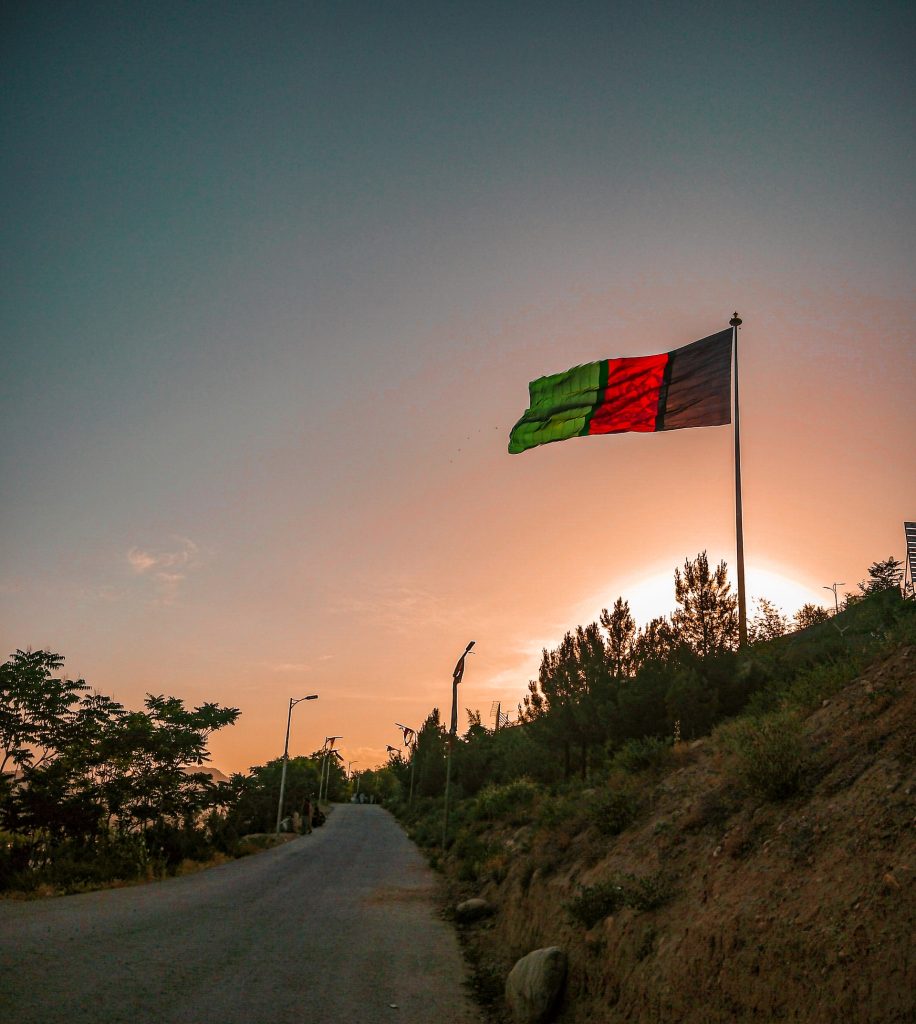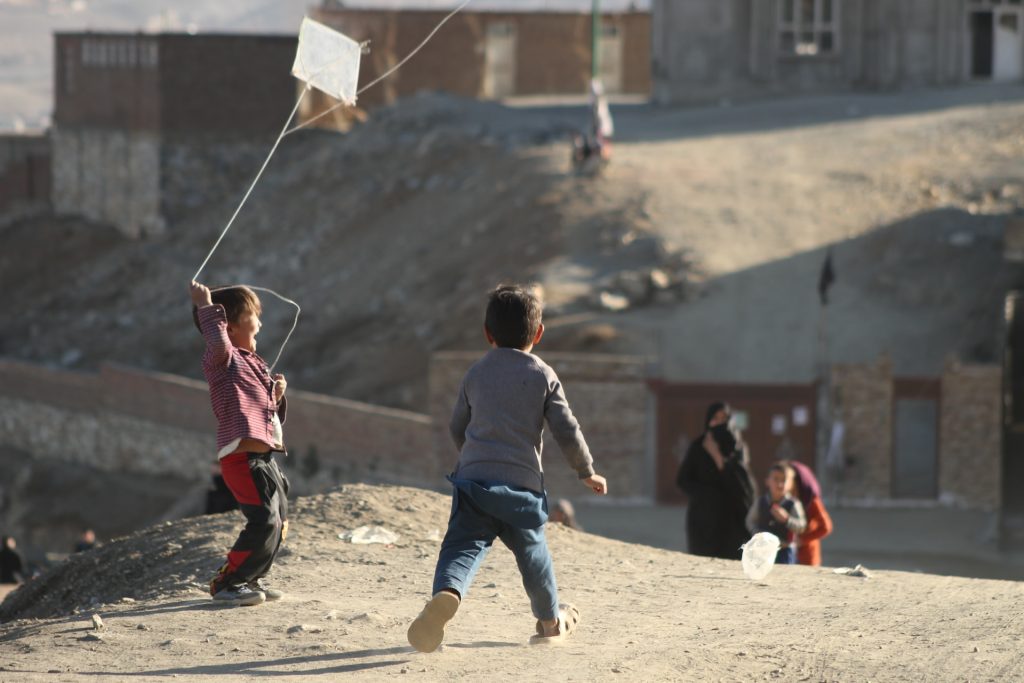Posts Tagged ‘Afghan Refugees’
Left in Limbo – The State of the Afghan Community after the U.S. Military Withdrawal
On August 15th, 2021, years of preparation came to a close as the United States military began to withdraw from Afghanistan. Intelligence specialists estimated that it would take a minimum of six months for Kabul to be captured by the Taliban. It took them 11 days. Thus began two weeks of chaos.
On August 31st, the U.S. declared its withdrawal complete and closed its embassy in Kabul. As part of its withdrawal, the U.S. military helped evacuate 78,000 Afghans out of Afghanistan. This rushed and dangerous evacuation left tens of thousands of Afghans behind and tore families apart. Today, the Afghan community in and out of the U.S. is forced to deal with long and confusing procedures. All they want is to see their family and the guarantee of a stable future, but this is much easier said than done.
What has been going on with the Afghan community since the withdrawal? Here is an overview and timeline of events so we can better understand and advocate for the Afghan community.
U.S. Bureaucracy Struggles to Keep Up Post-Withdrawal
On September 3rd, the Department of Homeland Security (DHS) announced “Operation Allies Welcome.” This new program was meant to resettle and support Afghans involved in the large-scale evacuation effort. Due to this new operation, tens of thousands of fleeing Afghans were granted humanitarian parole.
What is humanitarian parole and how was it used in Afghanistan?
Humanitarian parole is a way for the government to protect foreign nationals in emergency situations. It serves as a rapid way to let someone stay in the United States and work there without going through the complicated bureaucracy of the immigration system. United States Citizenship and Immigration Services (USCIS), the organization responsible for managing immigration status, quickly granted parole to 74,500 of the 78,000 evacuating Afghans. Due to the chaotic and urgent nature of the situation, USCIS did not have many other options.
On average, humanitarian parole lasts two years. During this time, parolees cannot be deported, and they have the right to work. Once those two years are up, they are either sent back to their country, or USCIS can extend their parole. Since August 2021, thousands of Afghans have been stuck waiting, trying to rebuild their lives between this two-year status. They simply hope that they won’t be sent back.

How did USCIS manage the crisis after the withdrawal?
Once the Taliban took back control of Kabul, USCIS began receiving an overwhelming amount of parole requests.
USCIS was not prepared to process Afghans that weren’t included in the initial evacuations. Those that were left behind had to wait. In September, their calls for help were put on hold. It took USCIS four months to adapt its processing procedures.
From January 2020, as the U.S. government began preparing its evacuation, to April 6th, 2022, 8 months after the withdrawal, USCIS received 44,785 total applications for parole. They processed 2,633. They accepted only 114. In total, because of the $575 fee attached to the application, USCIS received over $19 million.
As of 2023, this number of applicants has risen to 49,000 with a total of 410 approved. To make matters worse, about 70% of Afghans applying for parole are still within the country. The U.S. government no longer grants parole to those at the border– they must be outside of the United States. Every extra day they wait for a decision is a day they live under the threat of death.
Special Immigrant Visas
Certain Afghans can apply for Special Immigrant Visas (SIVs). An SIV is a special visa given to Afghans who put themselves under a security risk to interpret or otherwise be employed by the U.S. military. With this visa, Afghans can seek permanent residence and citizenship in America. Often, Afghans who qualify for SIVs are in dangerous situations. The Taliban views them as traitors and many SIV-eligible Afghans have been killed or are threatened by the Taliban.
The Problem with SIVs
The SIV program is in as much disarray as the parole program. Even before the U.S. withdrawal, there was a backlog of approximately 18,000 SIV applications. As the list kept growing, the understaffed Afghan SIV program couldn’t keep up. Internal reports found that it takes roughly 734 days to process an SIV application as of 2022— just over two years.
The latest report from the Department of Homeland Security found that there were about 74,000 applicants waiting for a decision on their SIV status. Even worse, these applicants are in the very early stages of the application process. They are waiting for the Afghan Chief of Mission to approve their papers and confirm that they did work with the U.S. military– step number four of an 11-stage process.
Additionally, there are only 17,000 SIVs left to give out. Like other immigrant visa programs, the State Department puts a cap on the number of visas it can give out. Once USCIS reaches this cap, there is no way for additional Afghan allies to benefit from this program. However, the State Department can raise the cap, which it has previously done. In December, the State Department added 4,000 visas to the total. Nevertheless, we are still far away from addressing the tens of thousands of Afghan allies.
SIV Applicants Face Another Issue
The SIV application process holds another hurdle. On August 31, 2021, the U.S. embassy in Kabul suspended operations. Therefore, SIV applicants are forced to leave the country; after a certain point in the process, they must show up at a U.S. embassy in person for an interview. Leaving Afghanistan can prove to be quite difficult, especially for an SIV applicant who may already be threatened by the Taliban.
While many SIV applicants were paroled out of Afghanistan during the initial evacuation, many were left behind. So many allies who put their lives in danger were simply abandoned.

Afghanistan Becomes Eligible for Temporary Protected Status
In March 2022, USCIS announced the designation of Afghanistan as TPS-eligible. Temporary protected status (TPS) is similar to humanitarian parole. When a country is facing conflict that would make it unsafe for its citizens to return, the secretary of the Department of Homeland country can declare that country and its citizens eligible for TPS.
Then, USCIS hears cases from different eligible individuals and grants them TPS. It protects them from deportation for 18 months and grants them authorization to work in the United States. It’s very common for USCIS to extend TPS, just as it can extend parole. However, just like parole, there is no path to citizenship or permanent residence in the United States. It’s another short-term solution.
It’s important to note that TPS only applies to foreign nationals who are present in the United States. Afghans outside of the U.S. can’t apply for TPS. Only those in the country before March 15, 2022 – the date Afghanistan became eligible – can receive this status. While great for the Afghan community in the U.S., those left behind can’t benefit. Their only options are to apply for backlogged parole, SIV status, or asylum.
Afghans can also have multiple statuses at the same time. The majority of Afghan TPS holders are also parolees. While it may seem redundant to be a parolee and TPS holder at the same time, it grants Afghans extra protection from deportation.
Family Reunification
In January 2022, the State Department announced a new form that would allow Afghans to apply for family reunification. There are procedures for SIV recipients to have their families join them, but these channels are also significantly backlogged. However, for those granted humanitarian parole or TPS, there was no way to reunite with their families until January – unless their family members were also individually granted an immigration status. This new form allows the applicant to reunify with their spouse and unmarried children under 21.
Regardless, Afghans must once again face the bureaucracy of our immigration system just to see their family again. Who knows how long it could take, or what could happen in the meantime?
Extending Humanitarian Parole
This June, USICS announced a new program to let Afghans apply for re-parole, extending their humanitarian parole and letting them live in the U.S. for another 2 years. They’re actively examining each case and seeing if Afghans are eligible for re-parole. This time, Afghans are also exempt from the $575 fee. While this is a good step in assuring that Afghans can stay in the U.S., it’s another short-term solution.

What Does the Situation Look Like for the Afghan Community Now?
There are Afghans who have been U.S. citizens for years or are already lawful permanent residents. They came to the U.S. long before the military withdrew from Afghanistan. Their family and loved ones are stuck waiting for a decision on their parole or SIV case and fear for their lives.
There are Afghans who were granted parole and TPS. They just began their application to renew their parole status for another two years. While they can live and work in the U.S., they have no guarantee of what their future will look like in two years— they have no path to citizenship. Those who qualify for SIV or asylum brave our immigration system and its eternal wait times. They’ve applied for the new family reunification program and wait to see if they’ll be reunited with their families back home.
As the U.S. government rolls out short-term after short-term solution, Afghans have no other choice but to wait—in limbo.
Hear the stories of Sayed and Hashemi, two Afghans living in Spokane.

Antoine Herrbach is a 2023 Summer Intern for World Relief. He is a Senior at Gonzaga University, studying Political Science, History, and Economics.
Stewarding God’s Grace: Q&A with Andrea Sheldon Tshihamba
“Each of you should use whatever gift you have received to serve others, as faithful stewards of God’s grace in its various forms.”
— 1 Peter 4:10
When Andrea first arrived in Durham with her husband four years ago, she left behind a career as an ESL teacher. Burnt out and looking to apply her energies to other outlets, she discovered World Relief Durham through a friend of her husband’s. Andrea felt called to help.
At first, she was not looking to resume her ESL teaching. After spending time getting to know people within World Relief, Andrea was assigned to be a friendship partner to a family of new arrivals from Afghanistan.
“I was asked to accompany a now-former World Relief employee to visit two Afghan families – brothers, wives and nine kids all in one apartment,” Andrea said. “They told me their biggest need was for their wives to learn English.”
Upon hearing this, Andrea felt as though God was speaking directly to her through this family and challenging her.
“At the time, I was not currently teaching English and wasn’t planning on changing that, but I couldn’t stop myself from agreeing,” Andrea said. “Immediately, it became clear that this opportunity was a gift from God. I asked myself, ‘why was I not using what I knew how to do?’”
In rising to God’s challenge, Andrea has seen her community unite alongside her in leveraging talents and passions to serve. Now, as she works to mobilize other volunteers from her church she sees the immense impact World Relief has daily.
“You’re the first friendly face a new arrival sees in a place so different from where they came, and that’s a meaningful thing that they can hang on to when it’s hard and feel different,” Andrea said. “People are sometimes unkind. So, trying to love, lead and be friends with people arriving is a transformational act both for those arriving and those extending God’s love. It is an essential pillar of our faith and in being a good person in general.”
This week, as we celebrate and observe National Volunteer Appreciation Week, we’re excited to share more of Andrea’s story with you.
Tell us more about how you got connected to World Relief.
Before moving to Durham, I was an ESL teacher and worked with immigrants in class.
When I moved here, I wasn’t looking to teach ESL. I wanted to help refugees in other ways, and I was already comfortable working with people with the lowest level of English. Dave (Andrea’s pastor) pointed me to World Relief.
He paired me with a friendship partner, which was very difficult – the woman was older, and she had dementia which was unknown at the time. But it was a good learning experience. Next, I was then partnered with a 14-year-old girl from the Democratic Republic of Congo. [She had been] displaced to Kenya, and then arrived in the U.S. when she was in 4th or 5th grade.
The young girl had some learning deficits and posed a challenge. There have been periods when I’ve seen her multiple times a week when she needed more support. I would pick her up from school, grab a bite to eat, then work on vocabulary and tutoring.
Through this, I feel like I now have a close relationship with her family. I became close enough to go to her school with her mom and contact the teachers. We also have fun together. I will never forget when she said to me once, “You’re so much more than a teacher.” I’m sort of like the fun aunt in the family. She’s obsessed with K-pop, so I know all this stuff about K-pop.
How have you seen the community impacted by welcoming refugees?
There is an inherent joy in serving and connecting with people new to the community and from different backgrounds and cultures. That joy is transformational.
A few years ago, I was asked to accompany a now-former World Relief employee to visit two Afghan families – brothers, wives and nine kids all in one apartment at first. Eventually, they were able to rent the apartment adjacent.
They told me their most significant need was for their wives to learn English. At the time, I was not teaching English and wasn’t planning on changing that, but I agreed. Immediately, it became clear that this opportunity was a gift from God. I asked myself, ‘why was I not using what I knew how to do?’
For someone interested in getting involved with World Relief, what would you tell them?
I feel my faith tells me to get involved. There are so many passages in the Old Testament that command us to welcome foreigners. World Relief is a great entry point if this is put on your heart through your faith. It’s both a gift and a calling.
World Relief is the access point for us to reach out and impact. I’m always waiting for World Relief to call me and say, ‘we have a family arriving!’ I’ve realized that I have a gift of mobilizing people and getting them to join me on my mission – our mission. It’s what I love to do.

Nathan Spencer is a former Communications Intern for World Relief Memphis. A recent graduate of the University of Memphis, Nathan continues to volunteer for World Relief as a copywriter.



